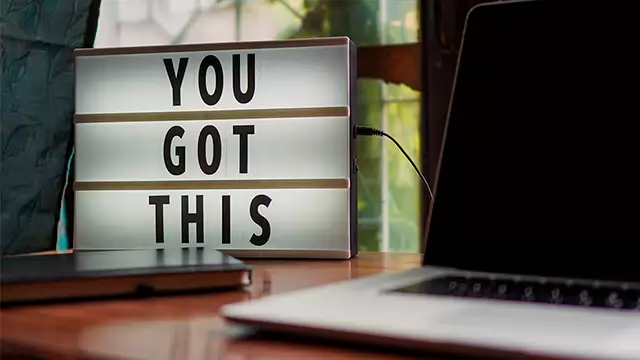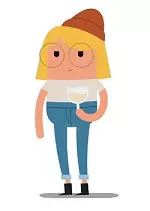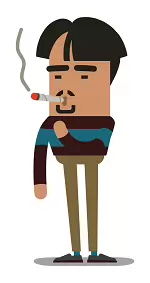
Addiction
What is it?
There are two types of addictions. One is addiction to substances, like alcohol, nicotine or drugs. This happens when your body gets used to the substance, and you need more to feel the same effect. The other type is addiction to certain behaviours, like gaming, shopping, gambling or sex. This happens when you want to feel the thrill or excitement again.
How do you recognise addictive behaviour?
If you are addicted, you exhibit addictive behaviour:
- You are constantly using the substance to achieve a certain effect;
- Desire (craving or sigh) creates a pattern;
- This pattern is difficult or even impossible to break;
- Your daily life suffers from it.
With mental dependence, you want the drug so badly that it is all you can think about. It feels like you cannot live without it.
With physical dependence, your body is used to the drug. If you stop using it, your body reacts. You might feel sick, with symptoms like fever, nausea, headaches or trouble sleeping. These are called withdrawal symptoms.
Causes of addiction
If your parents have an addiction, it can increase your own risk. But other things also play a role like feeling very low with signs of depression, money stress, or problems with your studies. Some people use drugs or other things to push away these bad feelings. If this sounds familiar, you're not alone, and help is available.
What can you do?
Admitting you have an addiction can be very hard. Many people feel ashamed and find it difficult to ask for help. But addiction can be treated — and getting help is nothing to be ashamed of. Talk to your doctor (GP). They can help you find the right support.
Healthcare in the Netherlands
Self-learning module
With your Fontys account, you can make free use of online self-help modules (e-health).
Alcohol
Do you have doubts about your alcohol usage? Do you want to get better at coping with temptation or social pressure? This is the right module for you! It contains useful tips and exercises that will give you more control over your alcohol usage and keep your drinking fun and responsible.
Go to the Alcohol module
Smartphone
Are you in control of your smartphone or do you use it more often than you would like?. In the latter case, it would be a good idea to take a closer look at your smartphone usage. This module can help. It contains useful tips, fun videos, and exercises to put you back in control.
Go to the Smartphone module
Cutting down cannabis
Want to stop or cut down on cannabis but find it hard? This module helps you take control step by step. You’ll learn what triggers your use, set your own goal, and find ways to cope with cravings, make a plan, and focus on what really matters to you
Go to the Cutting down cannabis module
Useful links
*Tip: also check what support your health insurance offers to quit smoking.
Contact
Book your appointment with a student psychologist or a student counsellor.
Book an appointmentWho can you contact?
- You can contact a student psychologist if you are experiencing complaints, worries, or problems for which you don’t immediately see a solution. They offer short‑term therapy.
- If your mental well‑being is affecting your study progress, if you want to request special arrangements, or if you are struggling with motivation issues, then you should make an appointment with a student counsellor.
